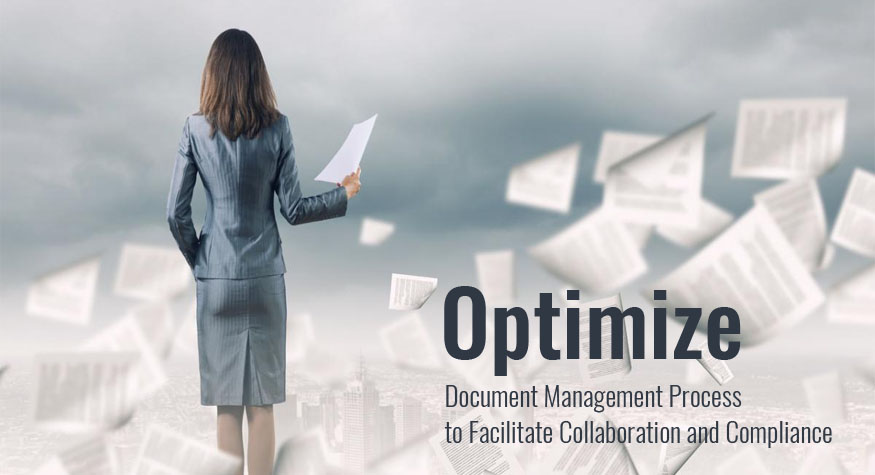In this technology-driven era, digital transformation has spread across industries, however; its extent in the banking and financial sector is felt more, due to the global nature of the business. Regional banks or retail banks or global investment banks; everyone is in favor of digitizing their operations and embrace paper free culture.
The current digitization in banks and financial institution has resulted into a paper-free culture. In digital environment, where different technologies have to co-exist, papers often create hurdles. It impedes the smooth and timely information-flow and distribution within the organization. A survey by AIIM further reveals how 72% of data scientists across industries, believe that business following the speed of paper will become outdated by 2020. And we can all see, why.
The primary purpose of converting papers into digital format is to create valuable assets of it. Digitized financial/banking documents such as affidavits, agreements, assignments, deed of trust, power of attorney, mortgage documents, foreclosures and many more, can be easily and cost-effectively stored. Moreover, creating backup in secure locations, for future reference becomes less complicated. Apart from this, digital files can be immediately indexed and archived for quick search, easy retrieval and re-use.
Needless to say, well-structured data processing followed with data management, plays a vital role in enhancing the productivity and efficiency of banks and financial institutions. In addition to this, they can easily optimize their data management processes to facilitate more collaboration – both internally and with the customers, that assists in compliance as well.
Collaboration – Internal and External
Banking and financial sector ecosystem consists of service providers, suppliers and clients, spread across the globe. Well-managed data management process establishes enhanced collaboration between the customers and internal departments – alike. I.e., in banks, corporate and legal departments can use data management processes to collaborate with the business-men on the floor to guarantee compliance.
In fact, a top national bank in the UK is already implementing this, where the Company Secretariat utilizes its data management system to establish processes with traders to ensure it is completely compliant with the Dodd-Frank Act.
Moreover, banks and financial services organizations have numerous offices and departments to manage, and often each workplace in different location automatically adapts to a unique methodology of their own for data management. This, inadvertently, makes it hard for teams, spread across different geographies, to work together as each will access similar records, but in their own style and format. And this results in duplication of documentation, and lead to inaccuracies, making its way into the stored data.
Compliance
Widely accepted fact is that devising an effective strategy to preserve and manage electronic records is important to reduce risk and aid compliance. Therefore; organizations need to build on capabilities to control versions or lock down the documents, to make the access restrictive, and to enforce more precision. Document management processes further helps to apply policies for retention and withdrawal of specific documents. This can be really useful, especially in banks and financial organization, as they involve multi-jurisdictional tasks, as doing this exercise manually – can be a big challenge.
Moreover; adhering to regulations plays a very crucial role in banking operations. Therefore, utilizing underlying data management processes, enables the lawyers and compliance officers to easily access and share critical compliance data in real-time, breaking the time-zone and language barriers. Additionally, since the laws are never static, banks can set up an alert in their system to notify the staff of any critical or new developments in the policies and procedures – in a timely manner. This is not the end – data management also enables the compliance officer to learn about what exactly to look for.
Therefore, a single version of data that is easily accessible by all involved-parties and stakeholders concerned – is imperative. This can be achieved by cutting down on usage of paper in the business by introducing an organization-wide data management processes, irrespective of geographic locations.
Ritesh Sanghani is a Director at Hi-Tech BPO and a passionate writer with experience of 10+ years of in Business Process Outsourcing.

1 Comment
Leave a Reply
Cancel reply
Leave a Reply
This site uses Akismet to reduce spam. Learn how your comment data is processed.





















































































































































































Rahul
November 17, 2017 at 8:02 am
Thanks for writing Document management process for Collaboration and Compliance. I would like to bring to your notice that there are many good DMS out in the market one of such is Docsvault: Document Management Software. This DMS is enriched with a lot of features including collaboration and compliance.